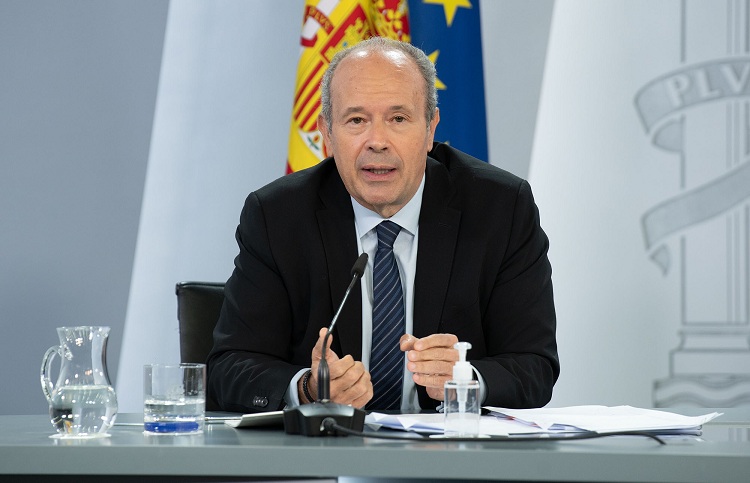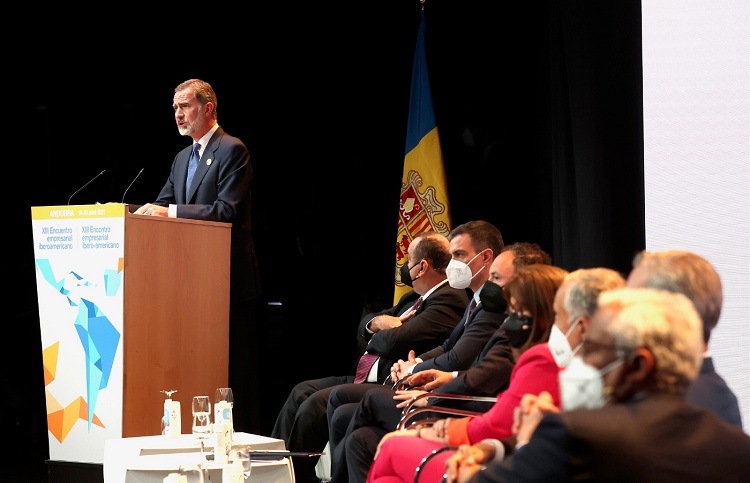The Diplomat
The Government has decided to withdraw its initiative to modify the mechanism for the election of the members of the General Council of the Judiciary (CGPJ), which had been strongly criticized by the European Commission and Spanish judges’ associations as endangering judicial independence and the separation of powers.
The Minister of Justice, Juan Carlos Campo, announced yesterday during the press conference after the Council of Ministers that the Executive has asked the parliamentary groups that had registered the initiative, PSOE and Podemos, to withdraw it. “The President of the Government (Pedro Sánchez) already said that it was frozen”, but “evidently there has been a stir” and “if that helps, the Government is going to urge the groups that presented it to consider withdrawing it”, added Campo.
It is “a decision of the Government, of the whole Government”, added the minister, who met last Monday in Brussels with the vice-president of the European Union for Values and Transparency, Vera Jourová, to inform her of the Government’s intention to ask for the withdrawal of the initiative. “What is really important is that those who are blocking the renewal of the Council take a step back and start renewing the constitutional bodies to which there is an obligation”, Campo warned, referring to the PP.
For his part, the European Commissioner for Justice, Didier Reynders, yesterday described the Government’s decision as “good news”, but warned that “it is not enough”. “It is very important to complete the renewal of the General Council of the Judiciary to be in line, completely, with European standards. That must be the next step”, the commissioner continued during a meeting with journalists. For this reason, he urged “all political forces” to “move forward with structural reforms that allow Spain to comply with European standards” and expressed his wish that, “in the future, a reform in Spain will be approved so that at least 50% of the members are elected by the judges”.
The news also coincided with the celebration of the EU General Affairs Council, in which the State Secretary for the European Union, Juan González-Barba, participated by videoconference, and in which a new session of the Annual Dialogue on the Rule of Law was held, dedicated, in this case, to the situations in Germany, Ireland, Greece, Spain and France. During his intervention, as reported by the Ministry of Foreign Affairs, González-Barba addressed precisely “the situation of the CGPJ pending renewal since December 2018”, one of the five issues relating to Spain that appear in the Annual Report on the Rule of Law in the EU 2020, prepared by the European Commission.
Since Pedro Sánchez announced in October 2020 his intention to reform the CGPJ to appoint its members without counting on the PP, the European Executive has closely followed the issue and has launched several warnings, in which it recalled that any judicial reform must be agreed with the relevant political actors and the Venice Commission, an advisory body of the Council of Europe for legal and constitutional matters.
Last April 12, three of the most important associations of judges in Spain (the Professional Association of the Magistracy, the Francisco de Vitoria Association of Judges and Magistrates and the Independent Judicial Forum, representing more than 2. 500 Spanish judges) wrote to Vera Jourová and Didier Reynders to express their “concern about the current outlook for judicial independence in Spain” and to “highlight the risk to the rule of law in Spain as a result of the legislative drift due to reforms of the Organic Law of the Judiciary (LOPJ) currently in process”. They also asked the Commission to urge the Spanish Government to bring its legislative reforms into line with the EU Treaty (TEU) and the Court of Justice of the European Union (CJEU) and that, “as a last resort and if the situation denounced is not remedied”, the procedure provided for in Article 7 of the TEU, which allows a Member State to be sanctioned for violating basic values of the European Union, should be initiated.







